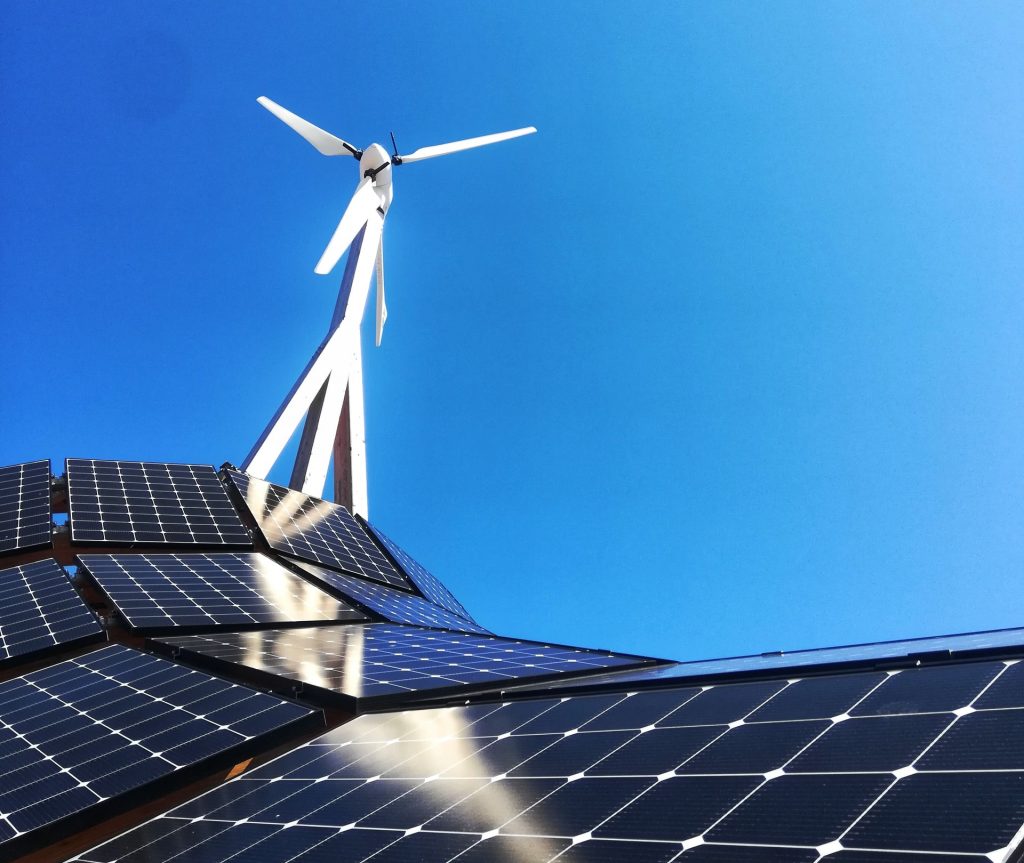As many of our public sector buildings sit empty, Liam Gillard asks if now is the time to implement energy efficiency measures for a green recovery.
The pandemic understandably continues to be at the forefront of everyone’s minds, and whilst responding to the crisis remains imperative, it is also important that public sector organisations do not lose sight of their responsibility to tackle the ongoing and evolving threat of climate change.
It has been widely acknowledged that climate-led investments will play a key role in rebuilding the country and its economy post-COVID-19. A ‘green economic recovery,’ will encourage innovation within green industries, stimulating employment within these sectors, and help to shape a more environmentally friendly future.
The Welsh Government has committed to achieving net-zero emissions by 2050 and a carbon neutral public sector by 2030, goals that can be supported by utilising such investments and acting now.
Additionally, the UK is set to host one of the largest international climate change summits – the UN Climate Change Conference (COP26) – for the first time in November 2021, and with this in mind, Wales has a very real role to play, to lead by example together as a nation.
Successfully achieving a green recovery will require a collaborative effort to be taken across all sectors of society, including the public sector, and every organisation will need to play its part.
“The council saved an estimated £17,662 a year as well as… reducing its annual carbon emissions by over 36 tonnes.”
One way that organisations can tackle climate change and contribute towards Wales’ economic recovery is by investing in energy efficiency technologies that will significantly reduce their energy consumption and carbon footprint.
Doing so will enable them to support emerging green sectors, helping them to grow and providing a further boost to the economy.
As we continue to recover from the pandemic, achieving cost savings will be a key focus for many public sector organisations who will inevitably be facing some financial strain.
In addition to helping to improve buildings and the environmental landscape, investing in energy efficiency projects has the added benefit of bringing significant financial savings through reduced energy bills.
Such savings can also be made on maintenance costs due to the longer lifespans and improved reliability of modern technologies, meaning organisations can invest money in other important resources as well as improve their overall economic resilience – something that is particularly beneficial right now.
Relatively simple measures, such as LED lighting upgrades and adding insulation or heating controls, can reduce energy usage and bills substantially, saving organisations thousands of pounds a year.
An example of this is Wrexham County Borough Council, who worked in partnership with Freedom Leisure and Salix Finance to invest over £115,000, upgrading the lighting in its sports areas to more energy efficient LEDs.
The project enabled the council to save an estimated £17,662 a year as well as deliver on decarbonisation, reducing its annual carbon emissions by over 36 tonnes.
Innovative. Informed. Independent.
Your support can help us make Wales better.
Similarly, in Cardiff, Coryton Primary School (part of the Pear Tree Federation), invested £26,000 in rooftop solar PV – a move which has reduced its annual energy costs by £3,375.
Financial and environmental advantages aside, energy efficiency measures greatly improve conditions for employees and visitors, while also demonstrating an organisation’s commitment to tackling their carbon footprint.
Now, with millions of employees in Wales currently working from home, and offices and buildings up and down the country largely empty, there has never been a better time to invest in energy upgrades, avoiding staff disruption while helping to make cost-savings that will cushion organisations against potential budget constraints.
The case for investing in energy efficiency upgrades is strong but making such investments may not seem like a viable option for organisations due to a lack of capital, especially right now given the current financial climate.
However, despite the pandemic, funding options are still available to help invest in such technologies, including support from Salix Finance, which provides interest-free government-funded loans for energy efficiency projects. The loans are subsequently paid back over several years from the savings made on energy bills, making them cost-neutral.
Over the last three years, through the Wales Funding Programme, Salix has helped fund 167 energy efficiency projects across public sector organisations in Wales worth more than £62m, resulting in estimated savings of over £8.7m and reducing carbon output by an estimated 21,600 tonnes a year.
The organisation offers funding for both large and small-scale projects, covering over 100 technologies from LED lighting and insulation to building energy management systems and renewables.
When it comes to deciding which energy saving measure to implement within an organisation, upgrading lighting with modern LED alternatives can be a good start as it is one of the most effective ways to reduce consumption. Similarly, adding motion sensors, to ensure lighting is only used when required, can further help maximise savings.
Renewables such as solar panels and heat pumps can also be viable options to help businesses future proof their buildings. Looking at the scope of work and taking a holistic approach to addressing energy efficiency can further increase financial and carbon savings and improve the building environment for its users.
As the world works hard to recover from the pandemic, and with the ongoing threat of climate change, supporting green industries has never been more important.
On an individual level, investing in energy efficiency projects can help organisations to become more resilient, while also contributing to a greener future for us all.
For more information on applying for funding in Wales please visit www.salixfinance.co.uk.
All articles published on the welsh agenda are subject to IWA’s disclaimer.





